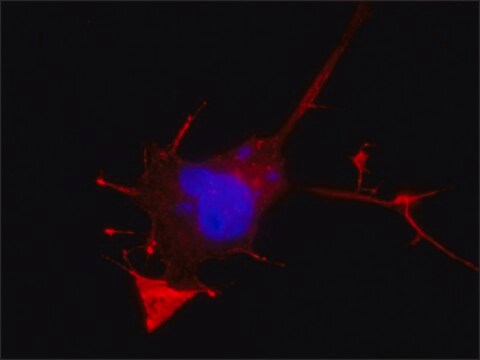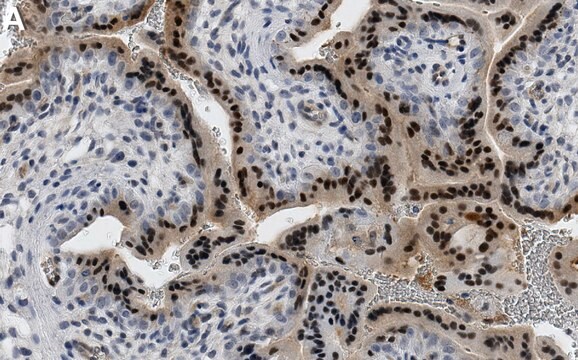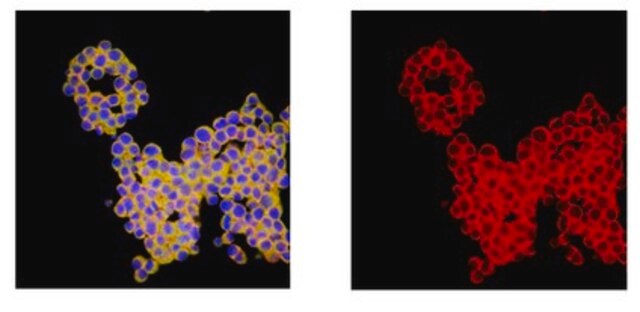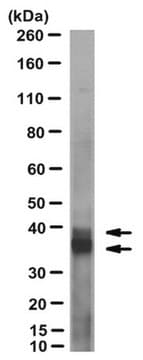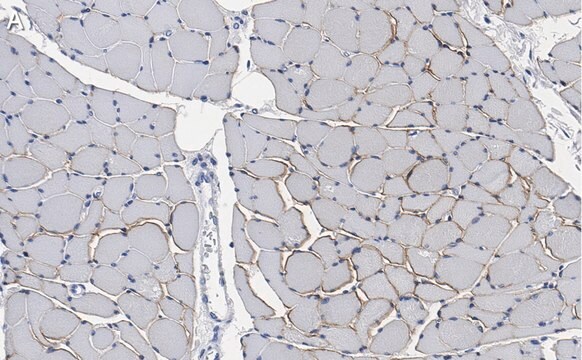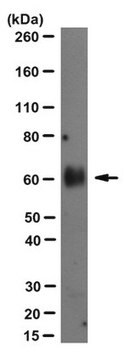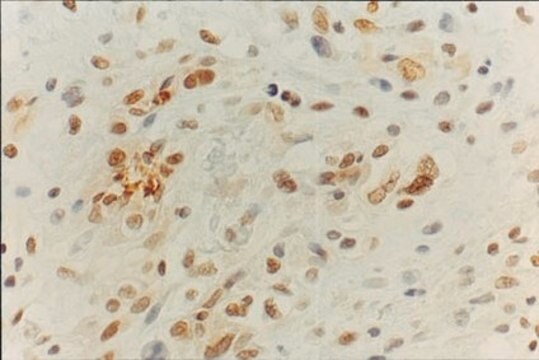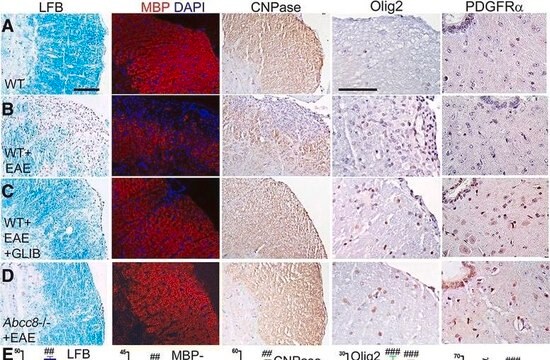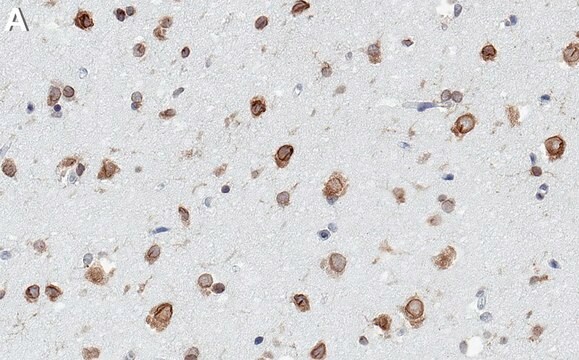ABS989
Anti-E6AP Antibody
serum, from rabbit
Synonym(s):
Ubiquitin-protein ligase E3A, E6AP ubiquitin-protein ligase, Human papillomavirus E6-associated protein, Oncogenic protein-associated protein E6-AP, Renal carcinoma antigen NY-REN-54
About This Item
Recommended Products
biological source
rabbit
Quality Level
antibody form
serum
antibody product type
primary antibodies
clone
polyclonal
species reactivity
human, mouse, rat
technique(s)
immunoprecipitation (IP): suitable
western blot: suitable
isotype
IgG
NCBI accession no.
UniProt accession no.
shipped in
wet ice
target post-translational modification
unmodified
Gene Information
human ... UBE3A(7337)
General description
Immunogen
Application
Signaling
Signaling Neuroscience
Western Blotting Analysis: A representative lot detected E6AP in HeLa cell lysate (Talis, A. L., et al. (1998). JBC. 273:6439-6445).
Immunoprecipitation Analysis: A representative lot immunoprecipitated E6AP in HeLa cell lysate (Wynn, H. K., et al. (2000). Journal of Virology. 74(14):6408-6417).
Quality
Western Blotting Analysis: A 1:1,000 dilution of this antibody detected E6AP in 10 µg of A431 cell lysate.
Target description
Physical form
Storage and Stability
Handling Recommendations: Upon receipt and prior to removing the cap, centrifuge the vial and gently mix the solution. Aliquot into microcentrifuge tubes and store at -20°C. Avoid repeated freeze/thaw cycles, which may damage IgG and affect product performance.
Other Notes
Disclaimer
Not finding the right product?
Try our Product Selector Tool.
Storage Class Code
10 - Combustible liquids
WGK
WGK 1
Certificates of Analysis (COA)
Search for Certificates of Analysis (COA) by entering the products Lot/Batch Number. Lot and Batch Numbers can be found on a product’s label following the words ‘Lot’ or ‘Batch’.
Already Own This Product?
Find documentation for the products that you have recently purchased in the Document Library.
Our team of scientists has experience in all areas of research including Life Science, Material Science, Chemical Synthesis, Chromatography, Analytical and many others.
Contact Technical Service